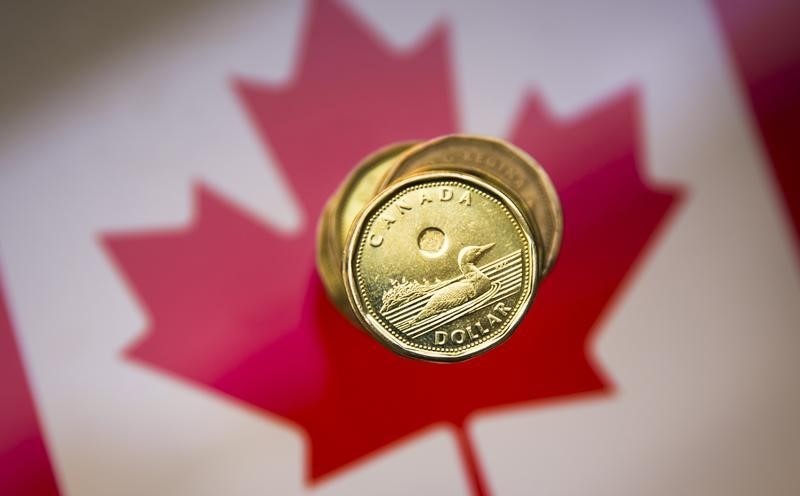* Canadian dollar at C$1.3044, or 76.66 U.S. cents
* Loonie touches its strongest intraday since June 14
* Price of U.S. oil falls 1.5 percent
* Bond prices lower mixed across a flatter yield curve
By Fergal Smith
TORONTO, July 31 (Reuters) - The Canadian dollar dipped against the greenback on Tuesday, with the currency pulling back from a nearly seven-week high intraday as trade uncertainty and lower oil prices offset data showing the domestic economy expanded more than expected in May.
At 9:19 a.m. EDT (1319 GMT), the Canadian dollar CAD=D4 was trading 0.1 percent lower at C$1.3044 to the greenback, or 76.66 U.S. cents.
The currency's weakest level of the session was C$1.3097, while it touched its strongest since June 14 at C$1.2992.
Canada's economy grew by 0.5 percent in May, the biggest rise in a year, as industries recovered from a combination of bad weather and maintenance shutdowns in April, Statistics Canada said. of a Bank of Canada interest rate hike by October rose to 68 percent from 62 percent before the data, the overnight index swaps market indicated. BOCWATCH
"Incrementally, it should support tightening," said Eric Theoret, currency strategist at Scotiabank. "Trade is still very much at the forefront, and I think that's what markets are a bit more concerned about and I think that's why we haven't seen CAD strengthen as much as we would maybe have expected."
Canada has been negotiating with the United States and Mexico to revamp the North American Free Trade Agreement. The United States and Mexico plan to hold ministerial-level NAFTA trade talks on Thursday in Washington, the second such meeting within a week. price of oil, one of Canada's major exports, fell after a survey showed OPEC's output hit a 2018 high in July, reigniting concern about supply swamping demand. crude CLc1 prices were down 1.50 percent at $69.08 a barrel.
Canadian government bond prices were mixed across a flatter yield curve, with the two-year CA2YT=RR down 0.5 Canadian cent to yield 2.053 percent and the 10-year CA10YT=RR rising 2 Canadian cents to yield 2.297 percent.
Canada is finding it harder to attract the foreign investment in its bonds and stocks that it needs to finance a current account deficit, as yields rise at a faster pace in the United States and structural headwinds stifle prospects for the domestic economy.
